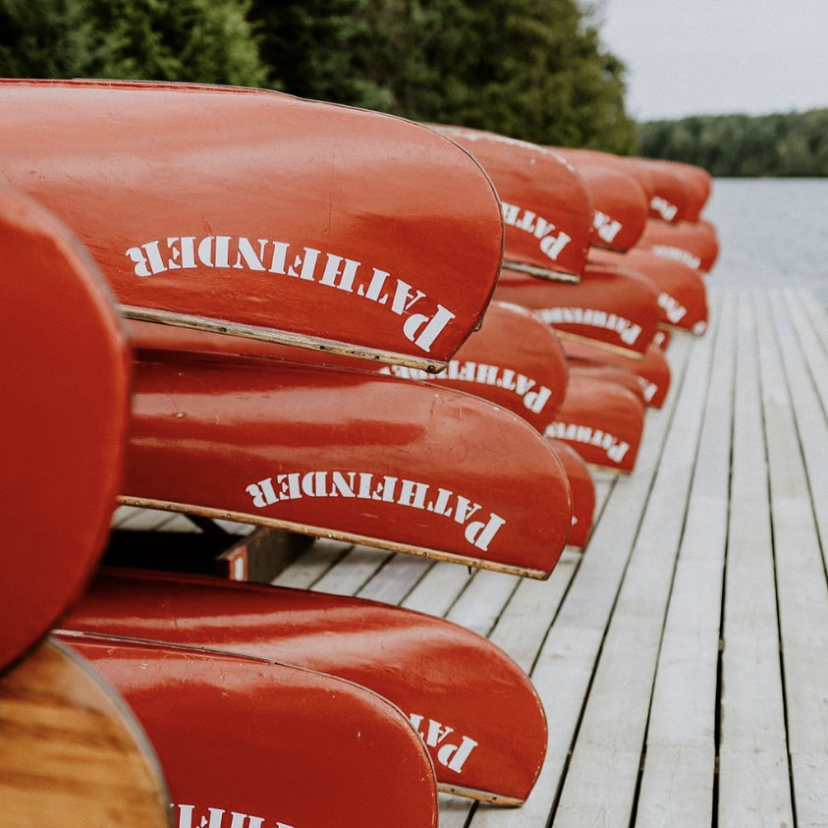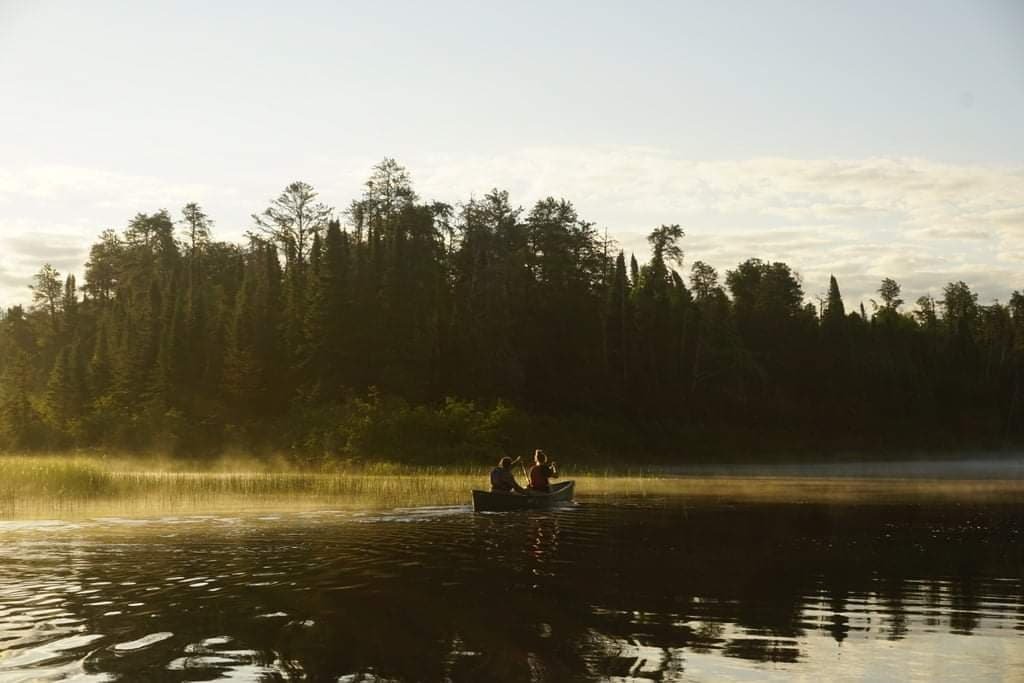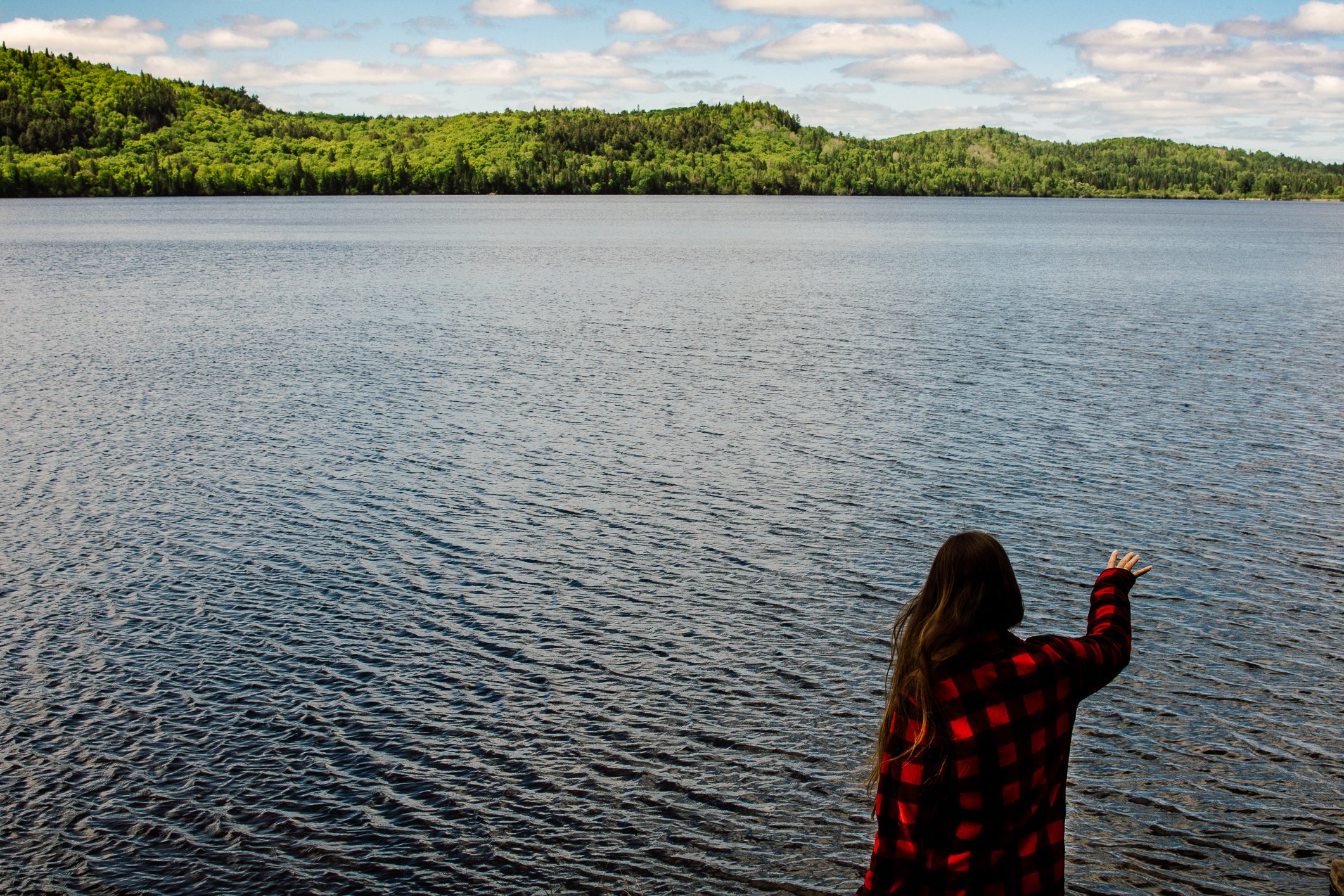
CAMP PATHFINDER
INDIGENOUS SCHOLARSHIP PROGRAM
Est. 2019
A Partnership of Waaseyaa Consulting & Camp Pathfinder
All applications due by April 1st, annually.
-
Camp Pathfinder’s Indigenous Scholarship Program (ISP), developed in partnership with Waaseyaa Consulting, invites Indigenous boys to attend a canoe tripping summer camp in unceded Algonquin ancestral territory. ISP scholarships are available for up to two Indigenous boys, covering any needed tuition support throughout the entire duration of their Pathfinder camper careers. Campers and families can choose from a 2 week session, or a 3.5 week session.
Located in unceded Algonquin territory at the headwaters of the Madawaska River, Camp Pathfinder was established on Source Lake in 1914. Camp’s current owners are alumni Glenn Arthurs and Mike Sladden, who have continued to steward the camp on Pathfinder Island as a simple, technology-free outpost, a unique community in the heart of what is now known as Algonquin Provincial Park, from which Pathfinder trippers explore the back country throughout Ontario and Quebec.
Young people come to Pathfinder for experiences that last a lifetime. Primarily a summer canoe tripping camp for boys, Pathfinder has become well known for its wilderness tripping and staff leadership programs. The camp also serves as an outdoor education destination for schools and family groups. -
Camper must self-identify as Indigenous. As Camp Pathfinder is located on the traditional territory of the Algonquin people, priority may be given to those of Algonquin ancestry.
Camper must be between the ages of 10-14.
Annual household income should not exceed $85,000.00 CAD. Should the household income exceed this amount, Camp Pathfinder reserves the right to request that the Camper’s family pay a portion of the cost.
Campers should be in good health and eager to participate in swim, paddle sport, tripping and cooperative living in a rustic setting without any modern technology.
Selected campers and family must be willing to meet with Camp Pathfinder and Waaseyaa Consulting prior to enrollment for the upcoming camp season.
-
To learn more or to apply, please visit Camp Pathfinder’s Scholarship page here. If you have any questions, please contact Waaseyaa Consulting here.
Application Package
To submit a completed application for the Indigenous Campership Award, all applications must include the following elements, available from Camp Pathfinder’s Scholarship page, here.
Campership Application
Camper’s Expression of Interest
Camp Pathfinder requests that the Camper expresses his interest to attend through a simple written statement (minimum 100 words), or an artwork, video or work in the camper’s preferred medium. Please note that this Expression of Interest must accompany the Application Package.
Recommendation for Campership
Camp Pathfinder requests that a parent, teacher, relation or other trusted adult provide a recommendation for campership, sharing their insight into the interests, abilities, challenges, needs, and the potential and promise of the campership candidate.
Household income information, if applicable.
How Can I Help?
This program is financed by donations and by Camp Pathfinder owners Glenn Arthurs and Mike Sladden. Interested donors may join in and designate a gift to the Indigenous Scholarship Fund. If you are looking to assist in this financial effort, please email Mike Sladden, Director of Camp Pathfinder to learn more.

CAMP TANAMAKOON
INDIGENOUS CAMPERSHIP AWARD
Est. 2022
A Partnership of Waaseyaa Consulting & Camp Tanamakoon
All applications due by April 15th, annually.
-
Camp Tanamakoon’s Indigenous Campership Award invites Indigenous girls to attend a two-week summer camp session at Camp Tanamakoon in Algonquin Provincial Park. To apply for this award, the camper must be between the ages of 8-12 years.
Camp Tanamakoon is located on Tanamakoon Lake in the upper reaches of the Madaoueskasibi - the Madawaska River - in unceded Algonquin territory in what is now known as Algonquin Park.
Camp Tanamakoon was founded in 1925 by Mary G. Hamilton, then the principle of Margaret Eaton School in Toronto, Ontario. Hamilton chose the site where camp sits on the shore of a sheltered bay on Tanamakoon Lake. Current owners, Kim and Marilyn Smith, have led Tanamakoon since 1984. The Smiths, along with Patti Thom and many other staff, campers, and alumni, have enhanced the Tanamakoon traditions and developed programs and facilities that provide leadership opportunities and teach basic human values while having fun in a safe, nurturing environment. To learn more about Camp Tanamakoon, please visit Camp Tanamakoon’s website. -
1. Camper must self-identify as Indigenous and state the community that they belong to. As Camp Tanamakoon is located on the traditional territory of the Algonquin people, priority may be given to those of Algonquin ancestry.
2. Camper must be between the ages of 8-12 years.
3. The camper award is awarded for a two-week session each year.
4. Annual household income should not exceed $85,000.00 CAD. Should the household income exceed this amount, Camp Tanamakoon reserves the right to request that the Camper’s family pay a portion of the cost.
5. Campers should be in good health and eager to participate in a variety of outdoor activities while cooperative living in a natural setting without any modern technology.
6. Selected campers and family must be willing to meet with Camp Tanamakoon and Waaseyaa Consulting prior to enrollment for the 2022 Season.
-
The Camp Tanamakoon Indigenous Campership application package is available here. To apply for Camp Tanamakoon’s Indigenous Campership Award, the following items must accompany a short application package:
Campership Application
A short application including camper and guardian contact information.Camper’s Expression of Interest
Camp Tanamakoon requests that the Camper expresses her/their interest in attending summer camp through a simple written statement (about 100 words), a piece of artwork, or work in the camper’s preferred medium. Digital applications will be accepted.Recommendation for Campership
A parent, teacher, relation, or other trusted adult should provide a recommendation for the camper, sharing about the camper’s interests and abilities, including what the camper might gain from a summer camp experience and their readiness to join a camp culture focused on outdoor skills, leadership, and team building.

